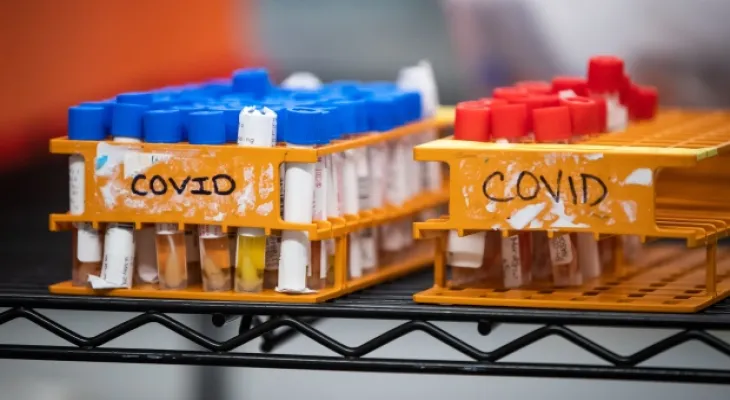Search here
Newspaper
Search here

Arab Canada News
News

Published: June 6, 2024
Ontario is quietly ending its wastewater monitoring initiative, which provided scientists with important data on infection rates in the province during the COVID-19 pandemic.
In an email, a spokesperson for the Ministry of the Environment, Conservation and Parks said the province is taking this step "to avoid duplication" as the federal government is also monitoring wastewater across Canada and is moving to expand sampling to additional sites in Ontario.
The ministry stated: "Moving forward, the Ministry of Health will work with the Public Health Agency of Canada on a data-sharing agreement to ensure the province can continue analyzing wastewater data specific to Ontario.".
Wastewater monitoring has emerged as a critical tool for tracking infection levels among the population.
The decision to end regional data collection sparked a sharp reaction from Ontario Green Party Leader Mike Schreiner on Wednesday.
Schreiner said in a statement: "We need this kind of detailed information to identify emerging threats and monitor their spread in the community and to make informed decisions regarding policy and public health." "Given the scale of Ontario's wastewater testing program, the expansion of federal testing in the province is insufficient to maintain the standard we have established.".
It was not immediately clear how often the federal government plans to conduct testing or how many sites.
Speaking with CP24.com, Dr. Fahad Rizk said that although this move represents a shift from how things have been done, there is currently no indication that the data will not be comparable.
Rizk, an internist at St. Michael's Hospital and former scientific director of the COVID-19 response program in Ontario, said: "As long as it comes in a timely and comprehensive manner, I see no reason for it to be managed at the regional level instead of the federal level.".
Rizk said: “It is not unreasonable for the federal government to adopt a centralized approach to testing.” "I would say from a public health perspective and the scientific perspective - and I think what the public should want - is that the availability of information remains comprehensive and timely, so that people in future waves can make decisions, especially the individual decisions that people are facing now.".
During the pandemic, when there were sometimes shortages of access to testing or fewer people being tested, wastewater data became a key measure of the level of viral activity present among the population. The data was later used to help track whether the province was entering or exiting a wave of infections.
The province conducts weekly wastewater testing in seven regions, including the Greater Toronto Area. Samples have been collected from 59 wastewater treatment plants, pumping stations, and sewage outfalls across all 34 public health units. The Ontario Public Health Agency then analyzed the data and made it available to the public online.
The program was based on the original work of Ontario’s Scientific Advisory Table for COVID-19.
Public health experts have praised wastewater monitoring as a useful new tool for tracking the spread of COVID-19 and other infectious diseases among populations.
Rizk stated that the ending of the program represents another milestone in the province's exit from the pandemic.
He added, "I think we can also see this as the end of an era." "This was a data point that had a lot of people very closely interested over the past few years. And I think what we're witnessing here is a decline in that kind of interest, which makes sense. This is not the crisis we are facing, as it once was.".
However, he added that the technology remains incredibly useful for public health officials, as well as anyone at greater risk who is trying to measure the level of risk in a given area.
He noted that wastewater data has also recently been used to track polio, early respiratory syncytial virus season, and other emerging and shifting pathogens in various regions.
Rizk said: "I think this is part of the future of surveillance technology." "We need to ensure its continued operation because again, we don't know what the next big crisis is or when it will happen, but having this infrastructure and operating it will allow us to respond more effectively."
Comments